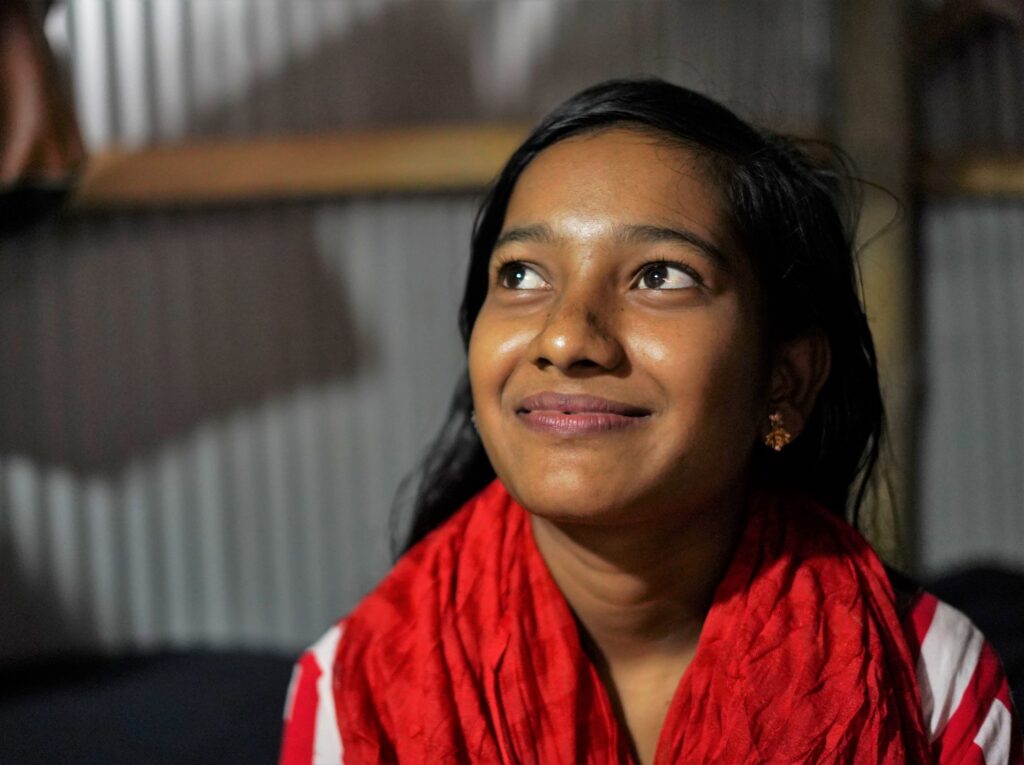FROM SURVIVOR TO COMMUNITY HERO


Frontline staff from World Vision’s Child Protection Project invited Akhi to a World Vision Centre and offered her life skills-based education and catch-up education. “We took Akhi to several schools, but they rejected her because she exceeded the school’s age thresholds for incoming students,” says Abeda, a project officer.
Despite this setback, Akhi was not daunted. Taking up vocational training with World Vision’s support, Akhi learned sewing skills to start a tailoring business at home. “Then we donated [Akhi] a new sewing machine with a pile of fabrics,” Abeda adds.
“I kept receiving orders for tunics and children’s dresses from my community. From social media, I also learned to make handicrafts like flower vases, mats, and vanity bags with recycled paper and beads. With my extra income we had meat, fish, and fresh fruits,” says Akhi. However, these good times would not last.
“Everything came to a standstill when COVID-19 started spreading. My mother and sister could not go to work at the shrimp plant and I could not keep my store open,” says Akhi. The Government would close factories and ban public movement to prevent the spread, locking down the whole country. “My parents, siblings, and I stayed home for months. We were not allowed to go out. I kept my sewing work but received very limited orders. I could hardly make USD12 from my sewing work,” says Akhi.
But instead of focusing on her problems, Akhi saw the needs of others in her community.
“When COVID-19 started, there were no masks in the market and they were very expensive. Poor people in our community could not buy them. I decided to make masks myself and sell them for a low price so that poor people could afford them. I even give masks for free to those who have no money,” says Akhi.


Akhi’s efforts did not go unnoticed. The United Nations Office for the Coordination of Humanitarian Affairs (UNOCHA) recognised her as a Real Life Hero, presenting her an award for her achievements. Akhi isn’t resting on her laurels. She has big plans for the future. “There are many girls around who have no job. I want to start a garment factory for them.”










